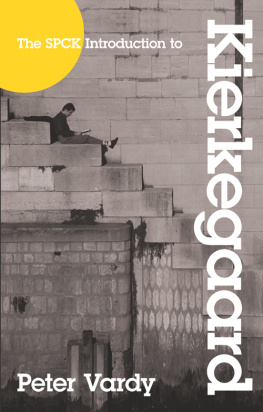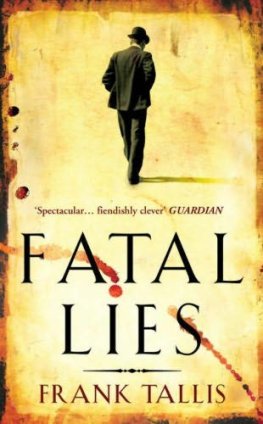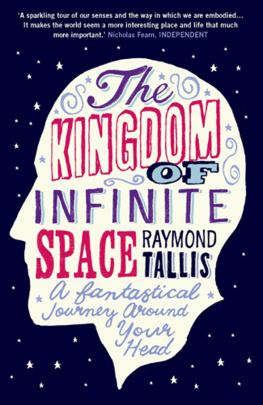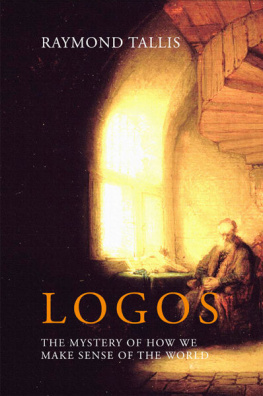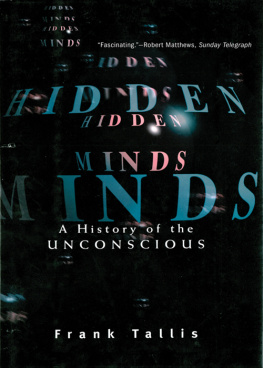The Black Mirror
Looking at Life through Death
RAYMOND TALLIS

First published 2015 in the United States by Yale University Press and in Great Britain, as The Black Mirror: Fragments of an Obituary for Life, by Atlantic Books, an imprint of Atlantic Books, Ltd.
Copyright 2015 by Raymond Tallis. All rights reserved. This book may not be reproduced, in whole or in part, including illustrations, in any form (beyond that copying permitted by Sections 107 and 108 of the U.S. Copyright Law and except by reviewers for the public press), without written permission from the publishers.
Yale University Press books may be purchased in quantity for educational, business, or promotional use. For information, please e-mail (U.K. office).
Printed in the United States of America.
Library of Congress Control Number: 2015940159
ISBN 978-0-300-21700-1 (cloth: alk. paper)
A catalogue record for this book is available from the British Library.
This paper meets the requirements of ANSI/NISO Z39.48-1992 (Permanence of Paper).
10 9 8 7 6 5 4 3 2 1
To Julian Spalding in friendship, gratitude and admiration
Acknowledgements
It is a pleasure to acknowledge the enthusiastic support of James Nightingale and Margaret Stead at Atlantic for this book, the scrupulous editorial work of Luke Brown and the guidance and inspiration of Toby Mundy over many years.
Contents
Lucem demonstrat umbra
The darkness shows forth the light
Mutato nomine et de te fabula narratur
Change only the name and this story is about you
HORACE
Overture: In the Beginning Was the Word
Death destroys a man; the idea of death saves him.
E. M. FORSTER
Let us banish the strangeness of death: let us practise it, accustom ourselves to it, never having anything so often present in our minds than death: let us always keep the image of death in full view.
MICHEL DE MONTAIGNE
Death is nothing a limit to the life it is not. Those whom we call the dead neither enjoy their peace nor endure their loss. But if death were merely nothing, there would be nothing to be said about it and this book would comprise as many blank pages as the reader could tolerate. But death is less than nothing. It is an omni-ravenous zero. Like the God of certain theologies, death is defined by what it is not. Unlike that apophatic God, however, it has a parasitic being, borrowing from what it subtracts or destroys, acquiring apparent substance by feasting on life. This book, therefore, is about what death takes away. It is an obituary, or fragments of an obituary, for life.
While death preys impersonally on the entirety of the living world, it is also deeply personal. Each journey from I-hood to thing-hood and onwards to loss even of thing-hood is unique. This transition from somewhere to nowhere, from someone to no-thing, is beyond the grasp of particular thoughts entertained by a particular person on a particular morning, afternoon, evening or night. Truly to think your extinction, you would have to become the equal in your thoughts of the sum total of yourself that is cancelled. So, while fear may be important, something deeper than fear stops us fixing our attention on our end. It is its inconceivability.
Fluency, that by dint of onward momentum precludes descent into the depths, is a constant temptation. Death after all is a word we use lightly: I cut him dead, or (of an embarrassment) I died a thousand deaths or (of a hangover) I felt like death. And there is no shortage of remarks attached to Impressive Names, apophthegms, obiter dicta, jokes (gallows humour for those for whom gallows is just a word) or consoling, or monitory, reflections, ready-made phrases gesturing towards feelings that are actually unfelt and thoughts that are unthought.
Indeed, talking about death may be even more evasive than remaining silent. It is not difficult to assume a portentous voice that, drawing on the noise this side of the grave, purports to speak for the silence on the other. Or to seem to outsmart death by putting it in its place, usually by personifying it to rob it of its sting, to deny it its victory. Tell that to the dead Marines.
Actual dying and real bereavement expose the hollowness of these triumphs. Few aphorisms and a few keystrokes are sufficient to liberate a torrent sound good when uttered between retches, bracketed between groans or spoken in a world emptied by the loss of ones lifes companion. Anything that does not pass W. H. Audens test something a man of honour, awaiting death from cancer or a is mere bling. But this is an impossibly high bar.
If death cannot be reached, even less tamed, by speech and to attempt to think or speak of it sometimes feels like trying to breathe in a vacuum what purpose could be served by a book devoted to it? Have we not, after all, been misled by the existence of a word into thinking that there is an item, a subject, a topic, to be discussed?
What is to be discussed is life. Lucem demonstrat umbra The shadow reveals the light says it all. The unspeakable Nothing italicizes at least some of the Everything that is life. While death destroys us in fact, the thought of our non-existence may save us from triviality, from entrapment in secondary things only temporally of course, but then life itself is a temporary matter. To be oblivious of death is to be only half-awake.
This is an implicit rejoinder to Spinozas assertion that The free man thinks about nothing less often than about death, and his wisdom is the preparation not for death but for life. The free man (and woman) who is preparing for life may think more deeply and, indeed, more freely by thinking about death. In order to live like a philosopher, it is necessary to die like one that is to die in thought and in imagination before you die in body. Few, if any, can philosophize while panting for breath, or vomiting, and none while confused, or comatose. No argument or revelation will save me when, as will surely happen, I shall be utterly broken and my body will embark on a one-way journey to extinction. No sentence will reach to the bottom of my grief, my pain, or my nausea. And this is why Montaigne enjoined us to banish the strangeness of death and always keep the image of death in our minds and in our imagination.
The attempt to see life from the perspective of death brings us Death, or the idea of it, may seem to offer that vantage point not as an Archimedean fulcrum, but as an imaginary outside which makes life (with all its outsides and insides) seem to be an interior, and ourselves to be exiles pressing our faces to a window, watching what is happening within. If to be a philosopher is to be an onlooker, the vantage point of death is the ultra ne plus of the philosophical viewpoint: you look upon your life from the virtual position of one who has outlived it. Deaths obsidian surface is a rear-view mirror reflecting the life that is now over. We stare at the darkness in order to see more clearly the life that we think of as behind us.
Such a perspective, liberated from the parochial interests of everyday life, is true to the strangeness of our being in the world. We forget this strangeness when there is so much living do to and living demands of us a responsible, focussed attention. How can I be astonished at the miracle of a Wednesday afternoon, of a city, of a conversation, when there is shopping to be unloaded from the car, a toddler walking towards a plug-hole with extended fingers, a clinic to be completed, and a thousand other things justly expecting our considered response?


